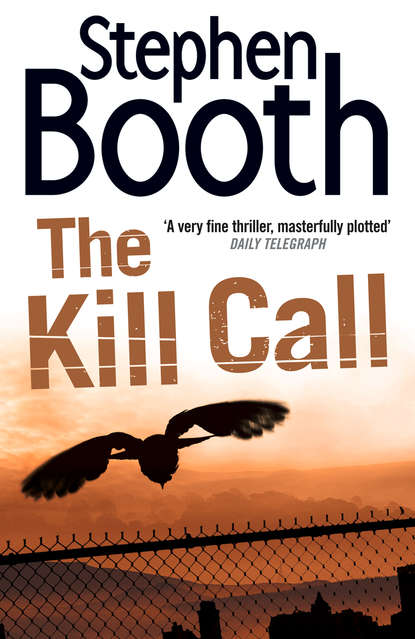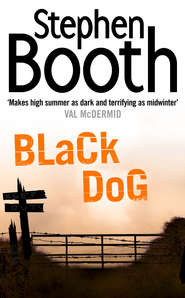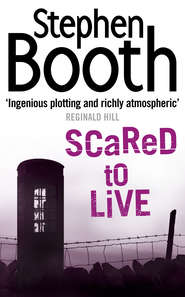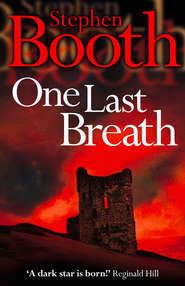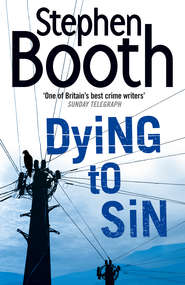По всем вопросам обращайтесь на: info@litportal.ru
(©) 2003-2024.
✖
The Kill Call
Автор
Год написания книги
2019
Настройки чтения
Размер шрифта
Высота строк
Поля
‘His wife told the West Midlands bobbies she has no idea. Hopefully, we should be able to get more out of her when she arrives.’
Fry and Hitchens looked at each other. If the death of Patrick Rawson did turn out to be murder, then nine times out of ten the spouse or partner was the obvious suspect. A lot would depend on Mrs Rawson’s demeanour, the consistency of her story, and whether she had a compelling motive.
‘Over to you then, DS Fry,’ said Hitchens cheerfully. ‘You were senior officer at the scene most of yesterday. Let’s have your assessment.’
Fry stepped up and took centre stage. The faces watching her expectantly were only her CID team, plus a few uniforms they’d been allocated. It wasn’t exactly a major spotlight, but it would do for now.
She drew their attention to the map. ‘Right now, we’re working on the theory that the victim drove up towards Longstone Moor early on Tuesday morning and parked his car, a black Mitsubishi 4x4, close to this field barn, here. It seems likely that he went there to meet with someone. Who that was, we don’t yet know. You can probably come up with some ideas.’
‘A woman?’ suggested DC Irvine.
Well, there was a chip off the old block. But DC Hurst, sitting next to him, raised her hand. ‘The person who made the 999 call was male,’ she said.
‘Yes, Becky. It was a young male voice, local accent. We can hear the recording in a minute.’
Luke Irvine and Becky Hurst were the two youngest DCs, who had been in the department a matter of months. Beat and response officers for a few years, then rushed into CID. That was an indication of the shortage of experienced staff. Fry was conscious of an entire generation coming into the police service behind her, with quite a different attitude to the older officers like Gavin Murfin. All of that new generation were born between 1979 and 1991. They were Thatcher’s children.
Despite that, she’d noticed a few signs that Irvine and Hurst were tending to look to the wrong people for role models. Ben Cooper, for a start. Murfin, even.
‘The victim made his way from his car to this derelict hut at the agricultural research centre, about two hundred yards away. He sustained a head injury at some point here, because blood was found inside the hut. His mobile phone and wallet were also taken. It seems likely that the person who made the 999 call on the victim’s phone was also at the huts, since he told the control room operator that’s where the body was to be found. But, in fact, the victim was still alive. Despite his injuries, he managed to get across these fields before he collapsed and died.’
‘I wonder why he didn’t just head back to his car,’ said Hurst. ‘That would be the logical thing to do.’
Fry looked at Hurst. ‘Yes, but if you see the severity of the head injury, you can imagine that he wouldn’t have been thinking logically. In fact, he was probably dazed and disorientated. He would have been suffering from concussion as well as blood loss, I guess. Hopefully, the pathologist will give us a clearer picture after the postmortem.’
Fry saw Superintendent Branagh settling into a chair at the back of the room, trying unsuccessfully not to be noticed.
‘SOCOs have been assigned to the car,’ said Fry. ‘We’ll bring it in when they’ve processed the scene where it was parked.’
‘A barn, was it?’
‘A field barn. The track to the location is still usable, but the Mitsubishi was parked out of sight of any walkers. We’ll be trying to trace Mr Rawson’s route from the car to the scene where he met his death, and of course establishing his movements prior to arriving at the barn in the first place.’
‘We have two scenes to cover, then.’
‘Three, including the hut. And two of them are totally open to the elements. Just our luck to get the sort of weather we had yesterday morning. We also have separate lines of enquiry on this mysterious 999 caller, and on the hoofprints found all over the scene. Some potential witnesses there, I hope.’
‘Appeals?’
‘Yes, we need to get public appeals out as soon as possible, to encourage these people to come forward with information. Particularly the man who made the call.’
They listened to the recording of the call logged by the control room. It was very brief, just a description of the location in an unsteady voice, as if the caller had been running. An insistence on ‘There’s a body,’ said twice. Repeated requests from the operator for the caller’s name were simply ignored. Listening to the recording for the second time, Fry thought the man might actually still have been running when he dialled the emergency number.
‘We won’t have the initial postmortem report on cause of death for a while yet,’ said Hitchens, sensing the end of the briefing approaching. ‘But, given the severity of the head injury, this could be classified as a murder enquiry at any time. So follow procedures, no slip-ups at this early stage, please.’
‘The killer seems to have taken his wallet and mobile phone,’ said Irvine. ‘Could this have been a robbery gone wrong?’
Fry shook her head. ‘I can’t see it. No, it’s more likely they did it to conceal the victim’s identity for as long as possible. We were lucky to find the car so soon and get his identity. Our only other lead is this –’ She held up the evidence bag. ‘A restaurant receipt in the victim’s pocket. Le Chien Noir, in Clappergate. If Mr Rawson used a credit card to pay for his meal, it should provide additional confirmation of his identity, even without the assistance of the wife.’
‘Diane, are you going to follow that up yourself?’ asked Hitchens.
‘As soon as we’ve finished here, sir.’
The DI smiled. ‘By the way, I hear you had a bit of trouble at the hunt yesterday?’
‘It was nothing. One of those situations where everyone claims to be an injured party.’
Superintendent Branagh waited while the meeting broke up. She was wearing a dress this morning. It was dark blue, with a pattern of enormous white flowers, and it was cut so badly that it made her shoulders look even broader than usual. Watching her stand up and come towards them made Fry think of a window ledge that the plant pots had fallen off.
‘I wonder what her vital statistics are,’ whispered Murfin. ‘She’d look good in the front row of the scrum.’
‘Women don’t have vital statistics any more, Gavin.’
‘Ah. Political correctness. Maybe I should get myself sent back in for re-education again. I obviously need my ten thousand mile service.’
As everyone went back to work, Fry noticed that Ben Cooper had sneaked into the back of the room, too. He looked as if he wasn’t sure how welcome he would be, or whether his presence could be regarded as official, even.
It turned out that Branagh had noticed Cooper, too. She turned to Hitchens and Fry.
‘DC Cooper is supposed to be on leave, isn’t he?’
‘Yes, ma’am.’
Fry regarded her with a certain respect. A woman who could memorize the duty rosters must have a ruthlessly efficient administrative brain. Most senior officers wouldn’t even have bothered looking.
‘He heard we were short-handed and came in to see if he could help,’ explained Fry. ‘But I can send him home, if –’
‘No, why would you do that? We should be encouraging such enthusiasm, DS Fry.’
‘Of course.’
A few minutes later, Fry found Mr Enthusiasm himself standing at her desk.
‘You didn’t mention any trouble with the hunt,’ he said.
‘It was all a storm in a teacup.’
‘Sabs, I suppose?’
‘Yes, but there were hunt stewards involved. I didn’t like the look of them too much, Ben. There were one or two familiar faces, I’m sure.’
‘Customers of ours?’
‘Almost certainly. When I get hold of their names, I think there’ll be a few counts of affray and GBH on record. Some potential suspects there, well capable of cracking a person’s skull. If we could link one of them to Patrick Rawson, then tie it up with the forensics …’
‘You’re focusing on the hunt stewards rather than the saboteurs?’ said Cooper.
‘The protestors were a motley bunch. But some of them looked as though they wouldn’t say “boo” to a goose. They’d probably be too afraid of violating its rights.’





